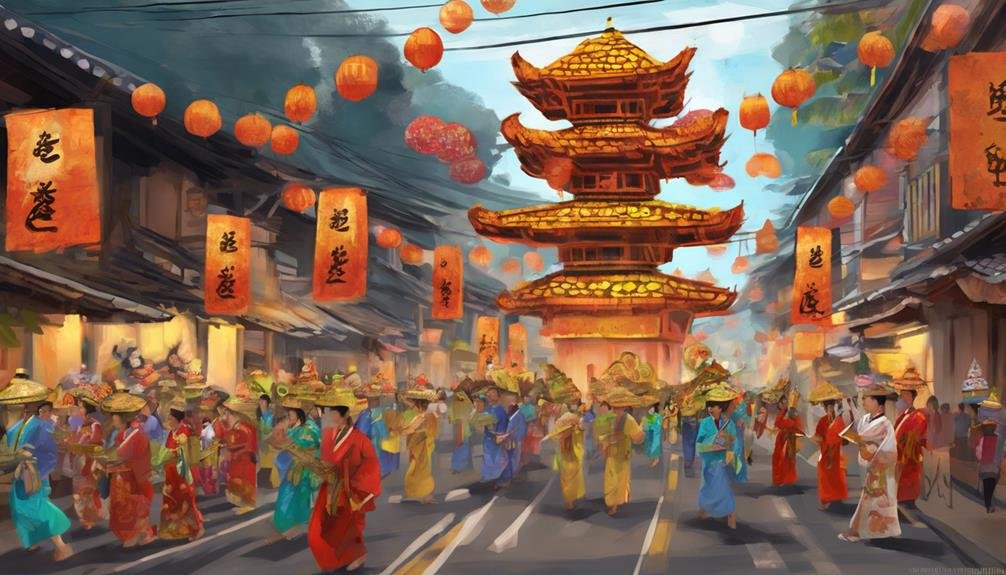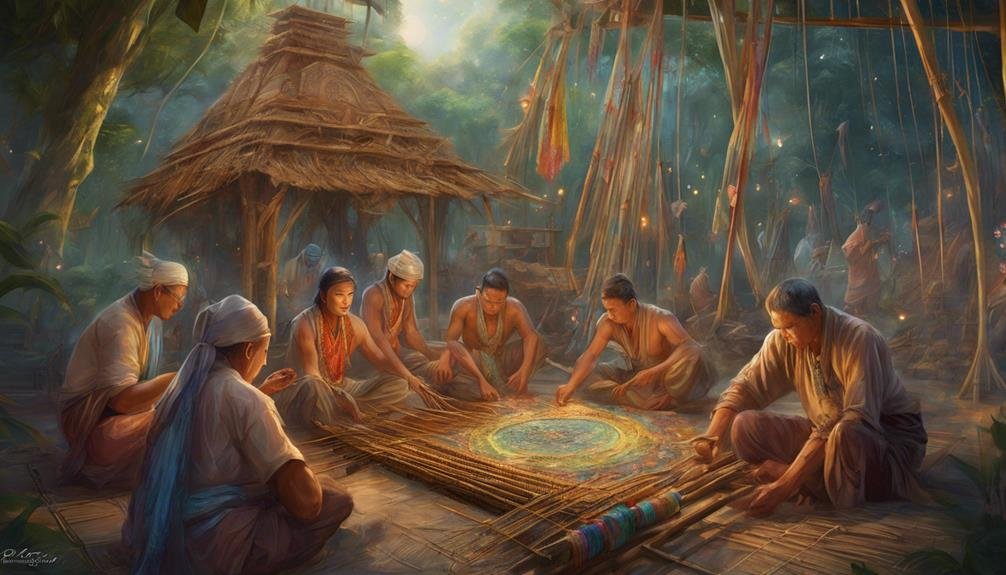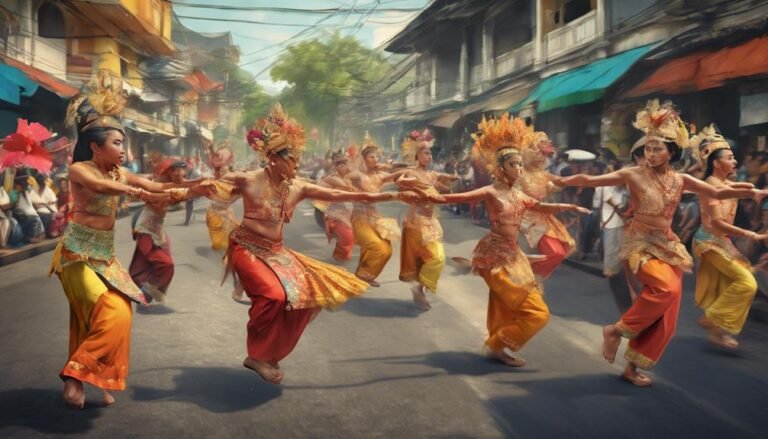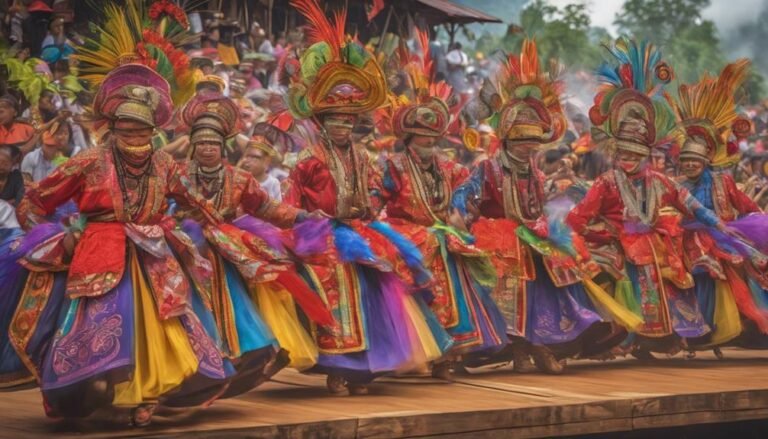Obon Tabuik in Pariaman Indonesia

Experience the vibrant Obon Tabuik ceremony in Pariaman, Indonesia, where Hindu and Islamic traditions blend in a unique cultural celebration.
The burning of ship-like structures symbolizes a spiritual journey for departed souls and the honoring of ancestors. Skilled artisans use traditional techniques to craft these intricate structures with community participation.
The festival features traditional dances, music, and processions highlighting local artistry and spiritual meaning. Witness the strong community bond and shared heritage as people of all ages unite to uphold this rich cultural tradition.
History of Obon Tabuik
Discover the fascinating history of Obon Tabuik, a cultural tradition deeply rooted in Pariaman, Indonesia. Originating in the 19th century from the Minangkabau community, this religious celebration blends Hindu and Islamic influences, showcasing Indonesia's diverse cultural heritage.
During Obon Tabuik, ship-like structures are paraded and ceremonially burned to symbolize a historical event, paying homage to ancestors and commemorating the past. This fusion of history and customs in Obon Tabuik highlights Pariaman's unique cultural tapestry.
The tradition of Obon Tabuik exemplifies the resilience of cultural practices over time, emphasizing the enduring significance of religious celebrations in shaping community identity.
Symbolism and Meaning

The burning of ship-like structures during Obon Tabuik in Pariaman, Indonesia, symbolizes a journey for departed souls to the afterlife. This tradition fosters communal unity and honors ancestors, preserving Minangkabau culture for future generations.
The ceremony holds spiritual significance, shaping the cultural identity of the community.
Tabuik Construction Process

Skilled artisans in Pariaman, Indonesia, carefully craft the Tabuik structures for the Obon Tabuik ceremony. These structures symbolize the journey of departed souls and showcase the community's rich cultural heritage. Passed down through generations, traditional techniques are used in the construction process, adding to the cultural significance of the event.
Community involvement is crucial in building these monumental Tabuik structures. From sourcing materials to assembly, the collective effort of the community ensures precision and care in the construction process. This shared labor fosters unity and pride among participants, enhancing the cultural importance of the ceremony.
The construction of Tabuik combines artistic expression with technical skill. Each step, from the initial framework to the final embellishments, highlights the dedication and craftsmanship of the artisans. The result is a striking symbol that not only honors the departed but also demonstrates the talent and unity of the Pariaman community.
Festivities and Cultural Performances

The Obon Tabuik ceremony in Pariaman, Indonesia, is a vibrant event filled with cultural performances that captivate spectators with lively rhythms and colorful displays.
Traditional dances and music are key components that bring the celebration to life. Skilled dancers in intricate costumes gracefully move to Indonesian music, showcasing the region's rich cultural heritage. Musicians play traditional instruments, filling the air with melodious tunes.
Elaborate processions featuring locals in ornate attire parade through the streets, adding a splash of color and traditional flair. Spectators can also participate in interactive performances, immersing themselves in the cultural experience.
As night falls, mesmerizing fire dancers skillfully manipulate flames, creating a captivating spectacle in the evening sky.
Significance and Community Participation

Discover the heart of Obon Tabuik by exploring its cultural significance and the active community participation that characterizes this annual event in Pariaman, Indonesia. Locals come together months in advance to prepare for the festival, with traditional rituals like building towering Tabuik replicas to honor the Battle of Karbala.
During the festival, the community collectively grieves and remembers as the Tabuik structures are paraded through the streets with traditional music and dances. People of all ages play vital roles in preserving the ceremony's authenticity and cultural heritage.
Beyond commemorating historical events, Obon Tabuik reinforces community solidarity and shared heritage, fostering a sense of belonging and tradition among the people of Pariaman that transcends generations.
Conclusion
In conclusion, Obon Tabuik in Pariaman, Indonesia is a significant cultural festival that unites the community to honor ancestors and remember a tragic event.
The tabuik structures and lively celebrations highlight the area's rich traditions and strong community bonds.
This annual event not only preserves cultural heritage but also provides a time for people to come together in unity, reflection, and joy.





